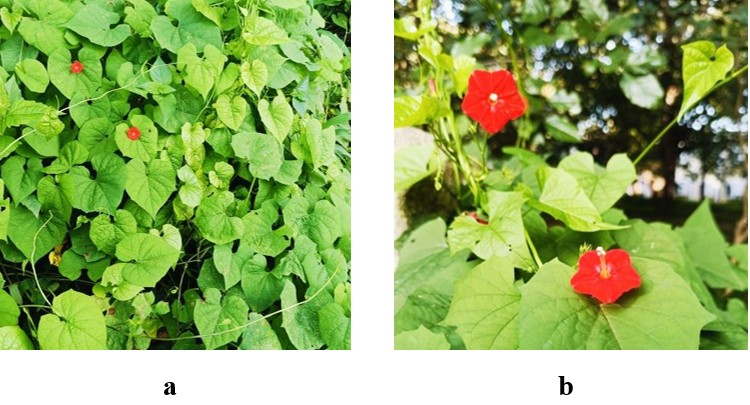- Printed Journal
- Indexed Journal
- Refereed Journal
- Peer Reviewed Journal

Journal of Pharmacognosy and Phytochemistry
Vol. 14, Issue 5 (2025)
A comprehensive exploration of phytochemistry and pharmacological activities of Ipomoea hederifolia
Kyadagi Ravikumara, Taralabalu Matt Kaveri and Sharan Umesha
Ipomoea hederifolia L., commonly known as scarlet morning glory, is an annual, herbaceous climbing vine that belongs to the Convolvulaceae family. This plant is widely distributed across tropical and subtropical regions and serves a dual role as both an invasive agricultural weed and a valuable ornamental and medicinal plant. This review consolidates current knowledge concerning its botanical characteristics, phytochemical constituents, and pharmacological activities. Data for this review were obtained through systematic searches in various scientific databases, including Google Scholar, Web of Science, Scopus, PubMed, and authoritative botanical books on herbal medicines. The plant is known to contain a wide range of bioactive secondary metabolites, including flavonoids, alkaloids (notably ipangulines), pyrrolizidine alkaloids, calystegines, cyanogenic glycosides, and resin glycosides, such as hederifolic acids A-D. These compounds are recognized for their diverse therapeutic properties. Pharmacological studies have shown that extracts of I. hederifolia exhibit potential antimicrobial, antioxidant, anti-inflammatory, anthelmintic, thrombolytic, genotoxic, and anticancer activities. The traditional uses of the plant align with these scientific evaluations, indicating its effectiveness in treating skin infections, inflammation, oxidative stress, and parasitic infestations, while also demonstrating cytotoxicity against various cancer cell lines. The presence of structurally unique and pharmacologically active compounds highlights the importance of further research into their potential for novel drug development.

Fig. 1: Habit of Ipomoea hederifolia: a Plant morphology b Flowers (Picture: photography by K. Ravikumara: Place of collection: University of Mysore, Manasagangotri Campus, Mysuru, Karnataka, India)
Pages: 43-49 | 1613 Views 47 Downloads







